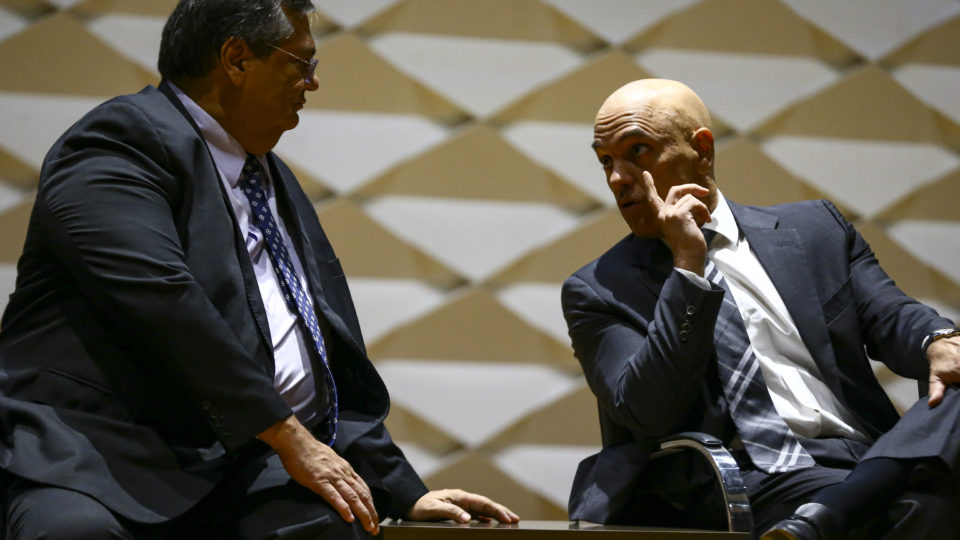By Alexandre Garcia*
(Opinion) On Wednesday, President Lula ordered the removal of the bars that had protected the Planalto Palace since the Dilma administration when people mobilized, calling for the president’s impeachment.
He went to the sidewalk to see the work and said they could now have better photographs of the palace without the bars.
I remember how open the Planalto was in 1979, during the military government.

I was undersecretary of Press in the Figueiredo government, and a group came to protest.
They crossed the street, practically reached the palace door, and there we talked.
A left-wing parliamentarian led it; nobody broke anything, nothing happened, and the guard didn’t even come; it was a time for conversation.
There was no water mirror yet.
Years later, a driver furious about something in the Sarney government invaded the Planalto Palace with a bus, which got stuck, because the top part got stuck in the ceiling of the palace’s first floor.
I cannot forget the phrase of the late Renan Soares, a well-known phraser, who said, “This is the collective unconscious,” with many meanings.
After that, they built the water mirror, and some cars fell into it.
Then came Dilma’s railing, which Lula has now ordered removed.
Hopefully, this means that the people can come because the Planalto Palace, the Supreme Court, and the Congress are in the Praça dos Três Poderes (Three Powers’ Square) precisely so that the origin of power could gather there and criticize, demand, and applaud.
THEY CENSORED THE CRITICISM OF THE CENSORSHIP BILL
Telegram deleted – because it would be fined R$500,000 per hour – the following remark about the censorship bill: “Brazil is about to approve a law that will end the freedom of expression.”
The Minister of Justice complained to the Secretary of Consumer Defense, and I even thought that censorship was already in effect.
Because article 220 of the Constitution says that expression is free and censorship is forbidden.
Article 5 says the same thing, protecting the freedom of opinion, anonymity being forbidden.
But now, by order of a Justice of the Supreme Court, Telegram withdrew its message and wrote the following:
“By determination of the STF, the company Telegram communicates that the previous message of Telegram characterized flagrant and illicit disinformation offensive to the National Congress, the Judiciary, the Rule of Law and Brazilian democracy, because it fraudulently distorted the discussion and debates on the regulation of social network providers and private messaging services, in an attempt to induce and incite users to coerce parliamentarians.”
When there is a project, it is open to discussion, criticism, applause, and change to remove some parts or include others.
This is democracy.
“Flagrant and illicit misinformation”?
I can’t think of anything in the Penal Code that identifies this as disinformation, but a court order is fulfilled anyway.
MINISTER SPREADS FAKE NEWS ABOUT INDIGENOUS PEOPLE AND MINING
Interestingly, the Minister of Indigenous Peoples, Sonia Guajajara, also criticized a bill in a Senate committee this Wednesday.
But it was the bill that dealt with garimpo on indigenous lands.
Don’t they claim that Telegram said things that don’t match reality?
Well, the minister made a statement that also does not seem to check with the facts: she said that mining is not an activity of indigenous people. Anyone who lives in the Amazon knows that it is.
Not all indigenous people, obviously; some plant soybeans, corn, coffee, raise cattle… but others are involved in mining, yes; some fight with the miners about mining, and others partner with the miners.
Everyone knows about the Cinta Larga and the deposits in the Roosevelt River region, including diamonds, which people say come out of the western Brazilian border.
This is a case to be dealt with like many others in the Amazon.
And it’s a good thing that this CPI of the NGOs is coming because we need to know what is under the trees in the Amazon beyond the Amazonians, who have been the victims of all this.
Drugs, for example, expand there, and so many other things, because there are so many NGOs, because there is so much talk, because of the greed that goes back a long time, since the time of Dom Pedro II.
The Amazon does not belong to Brazil. The Amazon is Brazil.
Brazil News, English news Brazil, Alexandre Garcia, censorship Brazil,

